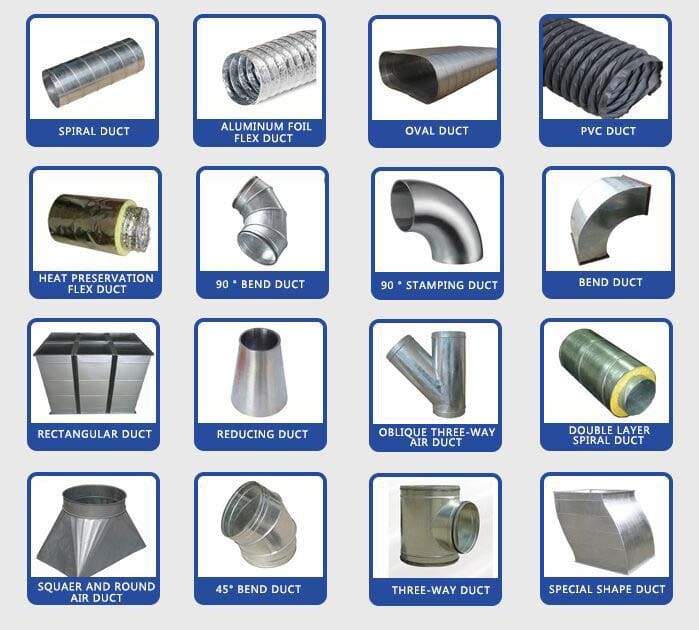The Outlook of HVAC: Embracing Intelligent Tech

As we move further into the 21st century, the importance of effective heating, ventilation, and cooling systems, or HVAC, cannot be overstated. Such systems play a critical role in maintaining satisfactory indoor environments in both domestic and commercial settings. But with advancements in technology, the HVAC landscape is changing rapidly, paving the way for intelligent, high-efficiency solutions. Understanding what HVAC is and how it works is crucial for homeowners and businesses similarly, especially as the incorporation of intelligent technology begins to revolutionize our expectations of these systems.
In this article explore the next generation HVAC technology, focusing on the innovations that are transforming how we warm and chill our spaces. From smart thermostats that understand your habits to eco-friendly systems designed to reduce your monthly bills, the next phase of HVAC is not just about ease; it’s about establishing a green lifestyle. We will also tackle frequent HVAC problems, maintenance tips, and seasonal considerations to help you make educated decisions for your home or office. Come with us as we delve into the world of HVAC and uncover how utilizing smart technology can lead to a smarter and pleasant future.
Comprehending HVAC Fundamentals
HVAC stands for warmth, airflow, and air conditioning. These systems are crucial for maintaining comfortable indoor climates in both residential and business buildings. HVAC units not only regulate temperature but also control air quality, guaranteeing spaces are livable and favorable for occupants. Grasping the fundamental components of HVAC systems helps homeowners and facility managers make knowledgeable decisions about installations, maintenance, and upgrades.
At its foundation, an HVAC system includes three primary functions: heating, cooling, and ventilation. Heating is typically achieved through heaters or heat exchangers that warm the air during colder months. Cooling is primarily provided by air conditioning units that decrease indoor temperatures in response to rising heat. air conditioning repair plays a important role by allowing fresh air to circulate while venting stale air, which is important for maintaining a healthy living environment.
A well-designed HVAC system should function efficiently and silently, providing steady comfort throughout a building. Common types of systems include main air conditioning, split mini-splits, and earth-sourced systems, each with its pros and applications. Grasping these fundamentals sets the groundwork for tackling more advanced topics, such as diagnosing common problems and examining smart technology advancements in HVAC.
Intelligent Heating, Ventilation, and Air Conditioning Innovations
The rise of advanced technology has changed the HVAC industry, making heating systems more efficient and easy to use. Cutting-edge features such as Wi-Fi connectivity allow owners of homes to control their HVAC systems remotely through mobile apps, allowing real-time changes based on their preferences and schedules. This connection not only improves convenience but also boosts power efficiency by adjusting system operations according to who is present trends.
Furthermore, smart HVAC systems frequently include adaptive algorithms that track user behavior over time. These systems can instantly adjust temperatures based on when the house is occupied or empty, greatly reducing energy consumption during inactive times. Additionally, integration with smart home devices, such as speech assistants, enables seamless control, permitting users to change their climate settings with simple voice commands, enhancing the overall comfort of the home environment.
Another notable innovation is the use of sophisticated sensors that track indoor air quality and humidity levels. These sensors can interact with the HVAC system to make immediate adjustments, ensuring optimal ventilation and air quality. By measuring pollutants, irritants, and humidity, these smart systems not only provide a pleasant environment but also contribute to better health and welfare for the occupants, showcasing the multifaceted advantages of adopting smart HVAC technologies.
Ensuring Effectiveness & Cozy Atmosphere
To ensure your HVAC system functions optimally, routine maintenance is essential. This includes changing air filters, examining ductwork, and scheduling professional tune-ups. Replacing filters monthly or every few months can significantly enhance air quality and system efficiency. Ignoring filters leads to blocked systems, increasing energy consumption and negatively impacting comfort levels in your home. Professionals can identify potential issues early on, ensuring the system runs smoothly throughout the year.
Alongside regular maintenance, smart technology integration can enhance both efficiency and comfort. Smart thermostats, for instance, are capable of adjusting to your schedule, allowing you to set temperatures according to your daily routines. By utilizing these devices, you can prevent unnecessary heating or cooling when the house is empty, resulting in substantial energy savings. Furthermore, smart sensors can recognize when windows are open and adjust HVAC settings accordingly, which helps maintain an ideal indoor environment.

Lastly, ensuring proper insulation and ventilation plays a pivotal role in maximizing HVAC efficiency. Well-insulated homes maintain temperature more effectively, reducing the workload on your system. In addition, good ventilation helps in maintaining indoor air quality, which is vital for comfort and health. By addressing these additional factors, homeowners can create a harmonious balance between energy efficiency and comfort, resulting in a more enjoyable living environment.
